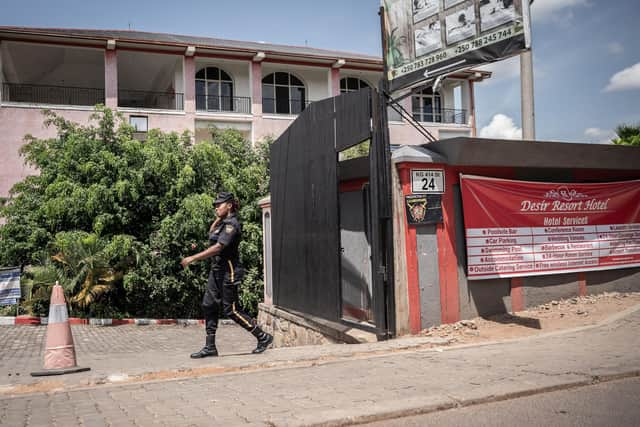Migrants notified of removal to Rwanda as first flight is set for June 14
The Government described the move as the “final administrative step” in its partnership with the east African nation, whereby people who are deemed to have entered the UK illegally will be encouraged to rebuild their lives thousands of miles away.
Home Secretary Priti Patel said it is expected that “attempts will now be made to frustrate the process and delay removals”, but she “will not be deterred” in her plans.
Advertisement
Hide AdAdvertisement
Hide AdCampaigners were previously boosted by confirmation that flights would not go ahead by the end of May, as originally signalled by Boris Johnson, following action from charities concerned about the policy.


The Home Office said it started issuing “notices of intent” earlier this month, informing some individuals they were “in scope for relocation”.
The removal directions confirm to people that they are being sent to Rwanda, and when, with the first flight expected to depart on June 14.
The department said officials are working to ensure individuals are given the “appropriate support” ahead of departure.
Those being relocated to the east African nation include people who have taken “dangerous, unnecessary, and illegal journeys”, including crossing the Channel, it said.
Described by Ms Patel as a “world-first” agreement when it was announced last month, the deportation policy will see asylum seekers deemed to have entered the UK by illegal means sent to Rwanda, where their claims will be processed.
If successful, they will be granted asylum or given refugee status in the country.
Those with failed bids will be offered the chance to apply for visas under other immigration routes if they wish to remain in Rwanda, but could still face deportation.
Advertisement
Hide AdAdvertisement
Hide AdMs Patel said: “Our world-leading partnership with Rwanda is a key part of our strategy to overhaul the broken asylum system and break the evil people smugglers’ business model.
“Today’s announcement is another critical step towards delivering that partnership and, while we know attempts will now be made to frustrate the process and delay removals, I will not be deterred and remain fully committed to delivering what the British public expect.”
The UK is paying the processing costs for each person sent to Rwanda, including caseworkers, access to legal advice, translators, accommodation, food, healthcare and up to five years of training to help integration.
Boris Johnson said tens of thousands of people could be flown to the nation under the agreement.
But The Times reported that modelling by Home Office officials indicated that only 300 a year could be sent there.
The department later said it did not recognise the figure and the number was uncapped.
The controversial plan to deport asylum seekers to Rwanda has been described as “irrational” and “unlawful” by campaigners, with several organisations threatening to take the Home Office to court over the policy.
Guidance published by the department said the east African nation is “a safe country to relocate people to”, although an assessment carried out before the agreement found “some concerns with its human rights record around political opposition to the current regime, dissent and free speech”.
Advertisement
Hide AdAdvertisement
Hide AdBella Sankey, director of Detention Action, one of the organisations threatening legal action against the plan, said: “What a way to mark the Platinum Jubilee weekend, by telling torture and slavery survivors who have travelled thousands of miles to reach safety that they will be expelled to an oppressive dictatorship.”
Comments
Want to join the conversation? Please or to comment on this article.
